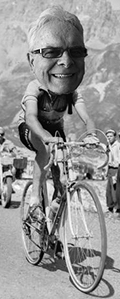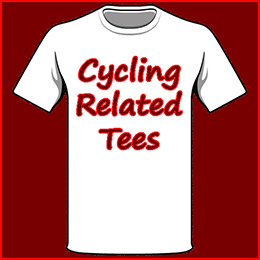The Lucky Few Generation
 Mon, August 8, 2022
Mon, August 8, 2022 My generation were known as the Lucky Few, or sometimes the Silent Few. Born between 1928 and 1945, we came between the Greatest Generation, who fought in WWII, and the Baby Boomers who came after the war. It was the period of the Great Depression and WWII, when fewer babies were born.
I was barely 4 years old when the war started, 9 years old when it ended. I never understood the war, at the time it was all I knew. I guess we were known as the “Fortunate,” or “Lucky” Few because we were too young to be drafted into the military, and we came of age in the 1950s, as the economy boomed after the war.
We were also known as the Silent Few because we did little in the way of protesting, marching or banner carrying. In the UK in the 1950s things were pretty good, and as far as we were concerned there was little to complain about.
In America it was the era of McCarthyism, with people being blacklisted and persecuted for having leftist views, so I would imagine it was wise not to express one’s views publicly.
In the UK too, we grew up with strict discipline, both at home and in the school system. Children were taught to be seen and not heard, and you never questioned or talked back to an adult.
As a result, we grew up completely isolated from adults, neither asking for advice nor seeking their help in any way. Big Business had not caught on to the potential market for fashionable clothes aimed at teenagers. We created our own fashions.
We followed trends of course, just as teens do to this day. We wanted to look different and did so by dressing the same. Fashions for young people started in London, and slowly spread to other areas throughout the UK.
We wore expensive handmade suits made by some of the best tailors in London, cut in the style of the Edwardian era of the early 1900s. (Think of Sherlock Holmes.) The press and general public called us “Teddy Boys” and we were openly ridiculed on the streets. Which I guess gave us the attention we wanted.
Our musical tastes in the early 1950s was Big Band Jazz. I got to see Count Basie, and Duke Ellington when they toured England in the mid-1050s. We frequented jazz clubs in London that featured small jazz trios, quartets, or quintets.
Records we bought and listened to on Juke Boxes were imported from America. I was a huge fan of Hank Williams, as were many other young people in Britain. In 1956 when Elvis Presly hit the scene, along with artists like Chuck Berry and Little Richard they had a large following.
However, not everything coming out of America was accepted by young British people, especially the college kids. They stuck with their interest in jazz, but by 1958 or so had switched their allegiance, to Traditional Jazz, Dixieland, and New Orleans style played in America in the 1920s.
Bands were being formed to play this kind of music, and an offshoot of this was an interest in early American Folk Musicians like Josh White, Woody Guthry, Hudy Ledbetter, and Big Bill Broonzy.
Yet another offshoot was an interest in “The Blues,” played by Black Artists in America. In the 1960s when there was an explosion of British bands and musicians, it may have appeared that this was an overnight sensation, but far from it.
It had been brewing for at least ten or fifteen years before that. Brought about by a generation of young people who did their own thing, created their own styles and had their own musical tastes. Uninfluenced by adults, or large Record Corporations. It spread to America, and the rest of the World, and other young artists carried it forward.
Brought about by a set of circumstances beyond any one person’s control, and being so unique it will probably never happen again. Being born during a World Depression, and spending their childhood during a World War, under a very repressive education system.
I am indeed “Fortunate” to be part of the generation known as the Lucky or Silent Few. The old saying, “You had to be there,” comes to mind, and being there gives me a perspective on life that I would not otherwise have.


















A summary of the two Tour de France races
I missed posting here last week for the first time in a long time. The reason, I got wrapped up in the Tour de France. First the men’s race, one of the best I had seen in recent years. Followed by the women’s race.
In the men’s race it was good to see that Tadej Pogacar was indeed human, and could be beat, although I can’t help feeling that Jonas Vengegaard was not greatly superior to Pohacar, rather equal, but having a stronger team.
Anyway, it was refreshing to see the respect these two young riders had for each other and it brought me back to what the sport used to be, as I remember it years ago.
I didn’t know what to expect in the Tour de France Femmes, but from the first stage on, I was hooked. Shorter stages meant that tactically the race played out quicker and was extremely entertaining and exciting to watch.
In the flat sprinter’s stages for example, there was none of the holding the break at two or three minutes for the entire race, until the last 10 kilometers.
Because the stages were shorter, breaks were brought back quickly, often followed by more attempts to break clear. This fast, attacking style of racing, over a shorter distance was not only exiting to watch, but it also meant by the end of the stage the peloton had split into smaller groups.
The result being, only the strongest riders contested the sprint, instead of the chaotic entire field, bunch sprint that has become all too common on the flat stages of the men’s races.
As for the final two mountain stages, Annemiek van Vleuten just dominated the entire race, winning both stages and the Overall Classification. It was a joy to watch her climbing ability.
It was great to see the support of fans by the roadside, especially as they had been exposed to three weeks of the men’s race. Apparently, the TV coverage was also watched by more viewers world-wide.
I can only imagine that having a Women’s Tour de France, will create an increased interest in the sport, by people who would otherwise not usually watch.
This can only be a good thing for the sport in general and perhaps create a way forward from the somewhat tarnished image that unfortunately the sport has created for itself over the years.